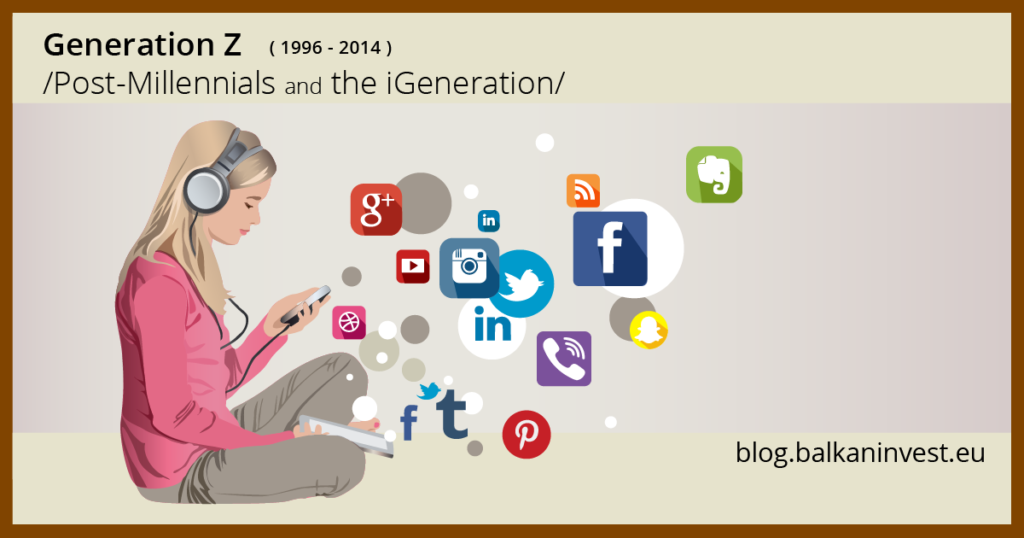In Part 2 of Recruiting Generations we focused on Generation Y or the so called Millenials. What is so special about them is that they are optimistic, individual and educated. In Part 3 we will try to give more information about their successors – Generation Z (also called the Zers). The first children that represent this generation are born in 1996 and is still arguable when does this generation end. However the most people agree over the year 2014.

The birth of Generation Z
Major events like financial crisis and terrorists attacks have left their marks on people born after 1996. Maybe the biggest difference between them and the Millennials is that the Zers are less optimistic about the future compared to their ancestors. The insecurity that they feel is caused by the lack of financial and political stability. Despite that an interesting tendency is observed. Less students than ever work during the summer holiday. Probably a possible explanation to this phenomen is the fact that their parents (Generation X and Y) earn more money compared to previous generations.
Be Social (not only with social media)
Furthermore employers should pay attention to the fact that salary alone is not motivation for Generation Z. It is much more important for them to have a job that makes the world a better place. They like to engage in social activities such as helping solve environmental problems, fighting world hunger, animal rescue and so on (just think of outstanding personalities of this generation like Greta Thunberg). It is of great importance to know that the culture and goals of an organisation make big difference when Generation Z representatives are looking for a job. They will undoubtedly prefer less paid job in a socially aware company rather than a better paid workplace with no social awareness.
Regarding technology Generation Z is the first generation ever that has no memories of a world without internet and social media. Fast access to any kind of information and communication via internet are taken for granted, they are not a luxury for the Zers. More than 70% of children who happen to be a part of this generation have smartphones and computers. That is why they spend the better part of their everyday life in social media, texting peers and following celebrities. Main characteristic of this young people is their tolerance towards difference. This means that they are open-minded and able to work and live along with everyone regardless of their sex, origin or religious beliefs. Prejudice is not common among the Zers mainly because internet communication enables them to meet people from all over the world.
How they use technologies
Representatives of Generation Z are believed to be great entrepreneurs. This belief is based mostly on their high education which makes them complex workers. A great deal of their skills is acquired thanks to the technologies they use since they were toddlers. Old school education is not something they can rely on. For example they do not seem to like teachers who just present them information which is easily accessible on the web.
Good knowledge of technologies and understanding of how they work can really help the Zers run their own business one day in terms of advertising and presentation of a product to the right audience. Their job is not just to work. Employers should make workplaces that make sense and provide excitement, satisfaction and visible results. As an employees the Zers have a lot of requirements, so companies should live up to their expectations if they want to win them. Things like social engagement, open-mindedness and tolerance are of great importance for Generation Z. And finally one thing which this generation is really good at – multitasking. You can really rely on its representatives when it comes to doing several things at once.



